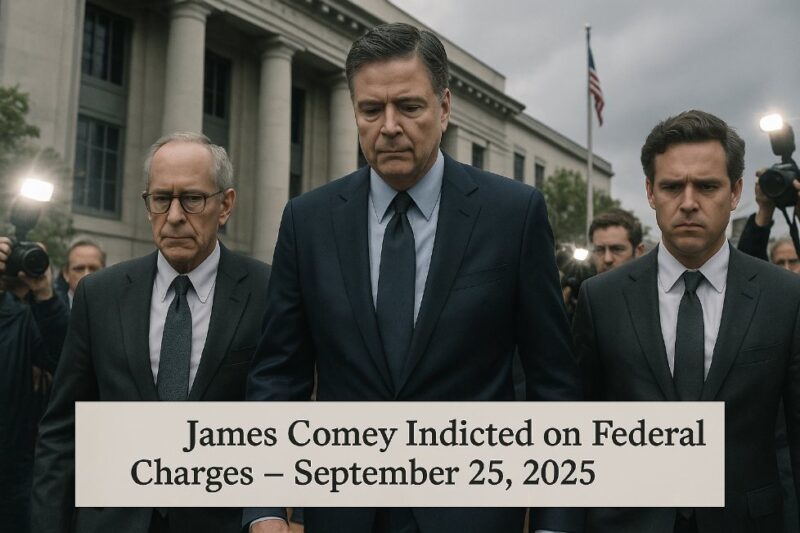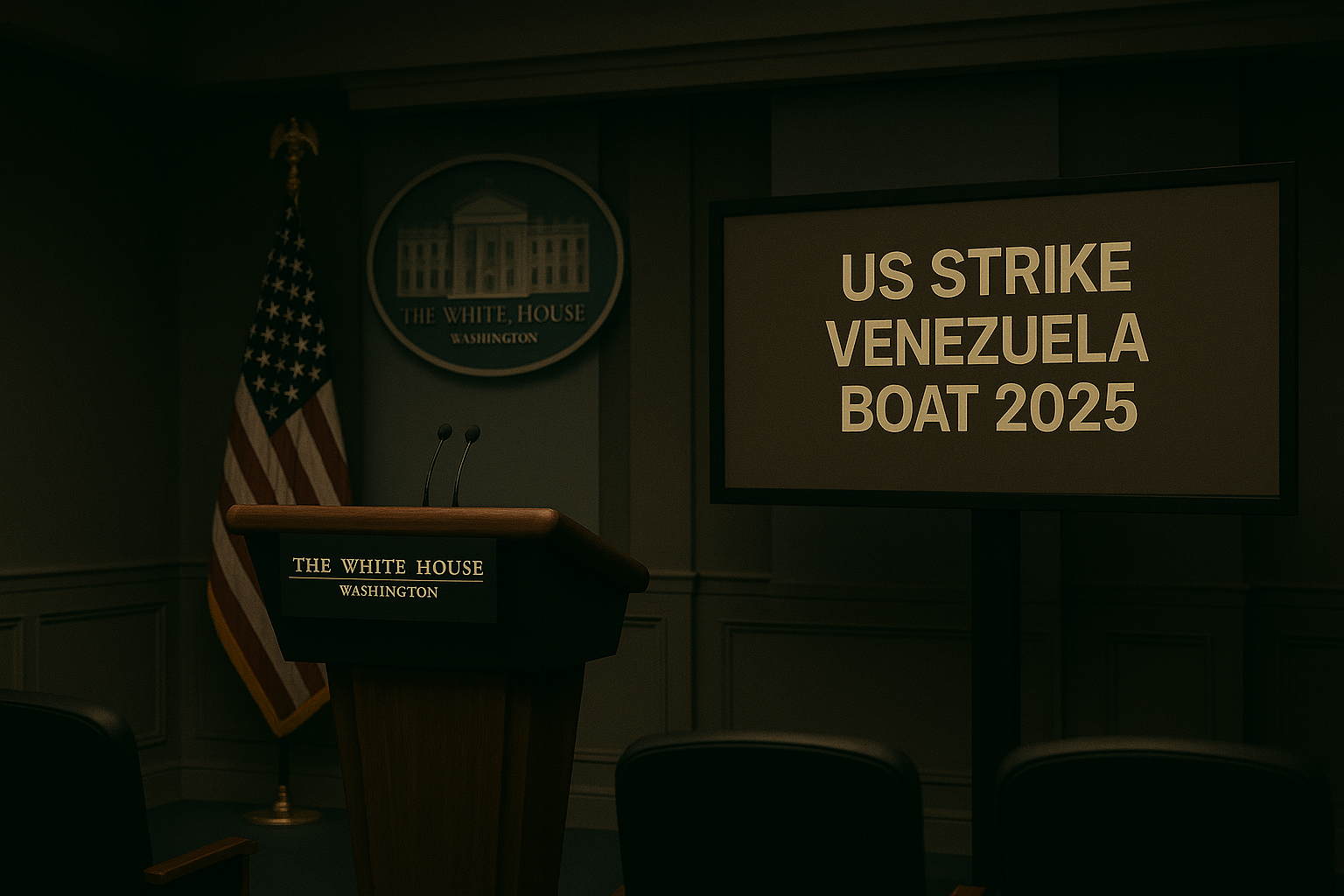Comey’s Fall in a Charged Political Arena
In the dim corridors of federal courthouses, where the echoes of past scandals linger, former FBI Director James Comey faced a stark reckoning on September 25, 2025. Indicted on charges of making a false statement and obstruction, Comey—once the architect of the FBI’s probe into Donald Trump’s 2016 campaign ties to Russia—now stands accused of misleading Congress about leaks in that very investigation. As President Trump, who fired Comey in 2019 amid cries of a “witch hunt,” watches from the White House, this development stirs a potent mix of vindication and outrage. For a nation still healing from election-year divisions, it’s a painful reminder that political vendettas can outlast campaigns, leaving families and legacies in the crossfire.
A Family’s Legacy Under Siege
The indictment hits close to home for Comey, whose career was defined by moral stands and controversial calls. At 65, the father of seven and grandfather reflects on a life upended: His 2020 testimony before Congress, where he denied authorizing leaks about the Russia probe, now forms the crux of the charges. But the ripple effects extend to his daughter, Maurene Comey, a former prosecutor fired by the Justice Department in a move she alleges was retaliation for her father’s actions. Her lawsuit against the department underscores the personal devastation—lost livelihoods, shattered trust, and the quiet fear of reprisal in a system meant to protect the innocent.
For those touched by the original Russia investigation, the news reopens old wounds. Investigators and whistleblowers who risked careers to uncover foreign interference now question if truth-seeking invites retribution. Comey’s supporters see a man hounded for doing his duty, while critics view him as emblematic of institutional overreach. In quiet moments, perhaps over family dinners in his Virginia home, Comey grapples with the irony: A director who once lectured on ethical leadership, now defending his own words under oath.
The Charges and the Clock
The federal grand jury’s decision on September 25, 2025, came just days before the five-year statute of limitations expired on potential charges tied to Comey’s September 30, 2020, congressional testimony. The indictment alleges that Comey falsely denied authorizing leaks about the FBI’s Crossfire Hurricane investigation into Trump’s campaign-Russia links, potentially obstructing justice.
Key players include Attorney General Pam Bondi, who announced the charges, and interim U.S. Attorney Lindsey Halligan, appointed after Erik Seibert’s abrupt resignation as U.S. Attorney for the Eastern District of Virginia. Seibert reportedly declined to pursue related cases, such as one against New York AG Letitia James for alleged mortgage fraud. Halligan, with no prior federal prosecutorial experience, now oversees Comey’s case—a detail that has fueled speculation about political motivations.
The timeline traces back to 2016: The FBI launches Crossfire Hurricane amid concerns over Russian election meddling. Comey oversees it until his May 2017 firing by Trump. Fast-forward to 2020 testimony, where he faces scrutiny over leaks. By May 2025, Comey’s symbolic beach photo with seashells forming “8647”—interpreted by the White House as a threat—prompts fresh probes. Trump’s weekend social media posts explicitly calling for Comey’s prosecution preceded the indictment by mere days.
Penalties could include up to 20 years for obstruction and five for false statements, though outcomes remain uncertain. The case unfolds in the Eastern District of Virginia, a venue known for high-stakes political trials.
Justice Department in the Crosshairs
Comey’s indictment is a flashpoint in the Trump administration’s broader campaign against perceived foes from the Russia era. Trump has labeled the 2016 probe a “hoax,” and actions against figures like James and Comey echo post-2016 purges. Bondi’s X post emphasized “no one is above the law,” but critics decry the timing—mere weeks after Seibert’s exit and Halligan’s appointment—as evidence of White House influence over the DOJ.
Historically, this recalls Watergate-era battles, where executive overreach tested institutional independence. The firing of Maurene Comey, daughter of the accused, parallels nepotism accusations but in reverse: Retaliation via family ties. Legally, it raises First Amendment concerns over Comey’s 2025 photo and questions the DOJ’s impartiality in politically charged cases. Socially, it deepens divides, with polls showing 45% of Americans viewing the indictment as “politically motivated” versus 35% seeing it as “justice served.”
Trials, Reforms, and Reckoning
As Comey prepares his defense, expect motions to dismiss on grounds of selective prosecution and statute issues. The case could drag into 2026, potentially clashing with midterm elections and amplifying calls for DOJ reforms, like independent oversight boards. Trump allies may push for expanded probes into the Russia investigation’s origins, while Democrats rally for protections against “weaponized” justice.
For victims of foreign election interference, this saga underscores the fragility of accountability. Globally, it draws parallels to authoritarian tactics, prompting allies like the UK to monitor US judicial norms. Resilience lies in bipartisan efforts: Perhaps a congressional review of leak statutes or ethics training for ex-officials. Comey’s fate may hinge on evidence from 2020 transcripts, but its legacy could redefine how America polices its guardians.
Comey’s Indictment and the Quest for Truth
James Comey’s indictment on September 25, 2025, isn’t just a legal footnote—it’s a seismic jolt to the foundations of trust in American institutions. From the Russia probe’s ashes rises a tale of power’s perils, where a former director’s words under oath become weapons in a partisan war. As the gavel falls, may it echo not division, but a deeper commitment to impartial justice, ensuring that in the pursuit of truth, no one—director or president—stands truly above the law.






